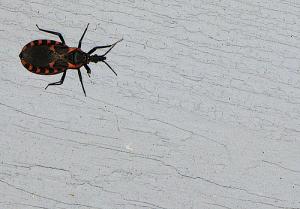Stirred Information on Blood-Sucking Bugs discovered in Hanoi

More than 270 blood-sucking bugs were found within Hanoi homes, all appearing strong and have well-feasted on the residents. Experts expressed that they had the same appearance with the assassin bugs, a bloodsucking insect commonly originating from Latin America. According to Truong Xuan Lam from the Institute of Ecology and Biological Resources, this bug can transmit a parasite called the Trypanosoma cruzi, which causes American trypanosomiasis, or Chagas disease, a known potentially fatal disease of humans.
Though Lam discovered this species of bug in Vietnam sometime in 2004, 2008 and 2009, they believe that this recent number they have recovered was the biggest one found so far. The bugs were first detected in a household in Hanoi, of which, its chances of spreading out in the community is very high. From the house where they collected the bugs, everyone reported to have developed symptoms like fever and drowsiness, and showed several insect bite marks on their skins.
According to experts, typical symptoms of the disease caused by these bugs are characterized initially by sleeping sickness, headaches, dizziness and fatigue within the first few months. The symptoms could drag to several years later in which the infected person will develop chronic symptoms including digestive problems which could even lead to fatal heart failure.
But some Vietnamese Scientists claim that the assassin bugs are fairly harmless. However, up to present, extensive research on the insects are ongoing. By appearance, the blood-sucking bugs have curved and sharp spouts like bees or mosquitoes. Their bodies are flat and they move slow, mostly in a crawling motion. Experts warn the public that these bugs bite results to an anesthetic effect due to some chemicals they release during sucking. When people do not feel anything as they are bitten, they normally do not notice the problem until they start to develop the worst symptoms at a very later time.
The problem is, Lam admits that there is no specialized poison to kill this bug. Majority, however, believe that no matter what may result from the ongoing studies, the potential health problems these bugs could bring makes it pertinent to exterminate them. As no massive efforts are presently carried out to do that, people are doing their own initiative of squashing them before even getting a chance to be bitten. Perhaps for now, that is the best way for them to ‘sleep tight and not letting the bugs bite’.









